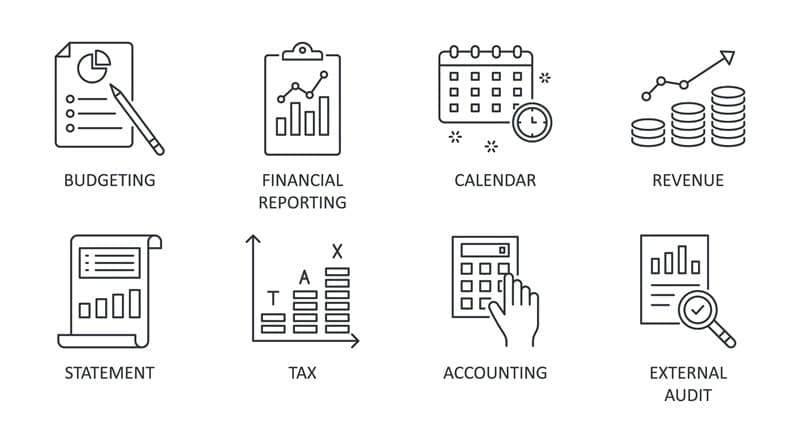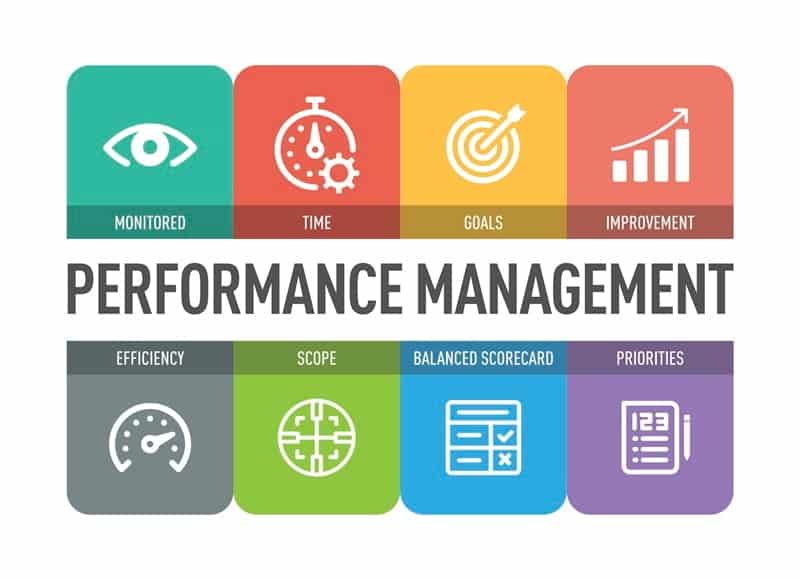Businesses That Run Themselves: 10 Passive Income Side Hustles for Retirees

Self-running businesses, which require minimal owner input and can generate passive income streams, have become increasingly popular in recent years. This is because these types of businesses follow a hands-off business model, requiring minimal input from the owner. They can also generate passive income streams for those seeking additional retirement income or looking to leave the corporate world.
In this blog post, we will explore the benefits and challenges associated with operating a self-running business. We’ll discuss how to start one of these low-maintenance ventures and provide tips on making your business successful.
1. Exploring Self-Running Businesses
Whether you’re interested in vending machines, online affiliate marketing, or real estate rental properties. There are numerous options available for those wanting to make money through a self-running business model. By understanding what it takes to create such an enterprise and implementing effective strategies for success. You can potentially build a profitable source of income while enjoying more freedom and time in your life.
Businesses that run themselves, also known as low-maintenance businesses or passive income businesses, are ventures that require minimal effort and time investment from the owner once they are set up. Additionally, these types of businesses typically involve automated systems or processes that generate revenue without constant supervision or intervention.
The concept of a self-sustaining small business is to establish an extra source of income. The additional income can reduce tension and provides more independence for the business owner. Which can particularly appeal to those looking for additional retirement income. Or, people wanting to escape the corporate world or seeking more time to enjoy life.
Examples of businesses that run themselves:
1. E-Commerce Stores
Overview: Online stores selling physical products through platforms like Shopify or Amazon FBA can largely operate on autopilot. Using dropshipping suppliers and inventory management software, you can minimize hands-on work while generating steady income.
Actionable Steps:
- Choose a niche (e.g., health products or pet supplies).
- Partner with dropshipping suppliers to avoid inventory management.
- Use tools like Oberlo or Inventory Source for automation.
Why It Works: Automation handles inventory, orders, and shipping, allowing you to focus on scaling.
2. Affiliate Marketing
Overview: Earn passive income by promoting high-demand products or services on your website. By sharing referral links, you receive commissions when visitors make purchases—making this a scalable and cost-effective business model.
Actionable Steps:
- Create a content-rich website in a niche you’re passionate about.
- Sign up for affiliate programs like Amazon Associates or ShareASale.
- Write SEO-optimized articles to attract organic traffic.
Why It Works: Once content is published and ranks in search engines, it generates income passively.

3. Digital Product Sales
Overview: Create digital products such as e-books, online courses, or stock photography. These require upfront effort to develop but generate ongoing revenue once published and marketed.
Actionable Steps:
- Identify a topic or problem you can solve with a digital product.
- Use tools like Canva or Teachable to design and market your product.
- Promote via email marketing or social media ads.
Why It Works: After the initial effort, digital products continue to generate sales indefinitely.

4. Rental Properties
Overview: Investing in real estate can provide regular monthly income. Partnering with a property management company ensures your properties are cared for without needing daily oversight. Other rental ideas, such as billboard advertising space, can also offer passive income.
Actionable Steps:
- Invest in properties in high-demand locations.
- Hire a property management company for day-to-day operations.
- Explore other rental opportunities like billboards or storage spaces.
Why It Works: Rental income is consistent and scalable with minimal involvement if outsourced.

5. ATM Business
Overview: Owning ATMs in high-traffic locations is a simple, low-maintenance opportunity. The initial setup involves finding locations and ensuring machines are restocked, but ongoing management is minimal.
Actionable Steps:
- Partner with local businesses for ATM placement agreements.
- Purchase or lease ATMs and set up cash loading contracts.
- Track performance using software like ATMIA.
Why It Works: ATMs require minimal maintenance and generate steady income.

6. Vending Machines
Overview: Vending machines are a popular self-sustaining business. Once placed in strategic locations, they generate steady income, requiring only periodic restocking and maintenance.
Actionable Steps:
- Research high-traffic locations like schools, gyms, or office buildings.
- Stock products like snacks, drinks, or even specialty items (e.g., tech gadgets).
- Schedule routine maintenance and restocking.
Why It Works: After the setup, vending machines require little effort but provide steady cash flow.

7. Car Wash Business
Overview: Automatic and self-service car washes offer lucrative opportunities with minimal daily involvement. Proper setup and occasional maintenance ensure smooth operations and consistent revenue.
Actionable Steps:
- Invest in equipment for a drive-through or self-service car wash.
- Choose locations with high vehicle traffic.
- Hire a team for periodic cleaning and repairs.
Why It Works: Automation handles most tasks, leaving you free to manage other priorities.

8. Laundromat Business
Overview: Laundromats require little hands-on management while offering steady income from a loyal customer base. Modern payment systems further reduce the need for active supervision.
Actionable Steps:
- Invest in high-efficiency washers and dryers.
- Install a card-based payment system for easier operations.
- Outsource cleaning and maintenance to local contractors.
Why It Works: Laundromats have a loyal customer base and generate steady income.

9. Self-Storage Facilities
Overview: Self-storage businesses provide consistent income with low maintenance. Once facilities are built and rented out, management needs are minimal, making this a reliable passive income source.
Actionable Steps:
- Build or purchase storage units in growing areas.
- Use digital booking and access systems for automation.
- Offer additional services like climate control for premium pricing.
Why It Works: Self-storage facilities require little day-to-day interaction but generate recurring revenue.

10. Subscription Box Business
Overview: A subscription box business delivers curated products to customers regularly, like monthly or quarterly. With themes such as gourmet snacks, pet supplies, or hobby kits, you can automate orders, payments, and fulfillment to generate recurring income with minimal management.
Actionable Steps:
- Choose a niche with passionate customers.
- Partner with suppliers for curated items.
- Use platforms like Cratejoy to manage orders and logistics.
Why It Works: Subscription boxes provide recurring income with scalable growth potential.
Important Considerations:
While these examples offer varying degrees of automation, no business is entirely hands-off. Even the most self-sustaining businesses require occasional oversight, maintenance, or updates to keep them running smoothly. However, compared to traditional brick-and-mortar establishments that demand daily attention, these ventures provide a much more flexible and relaxed lifestyle for their owners.
Why Choose Self-Running Businesses?
Self-sustaining businesses present an excellent opportunity for those looking to generate additional income or make a transition out of the corporate world. Whether your goal is to gain financial independence, boost retirement income, or improve your quality of life, these business models offer numerous benefits. By leveraging automation and low-maintenance strategies, individuals can achieve greater economic autonomy while enjoying a more balanced and fulfilling lifestyle.
In Summary
Self-sustaining businesses like these are excellent options for generating passive income while maintaining flexibility and freedom. By leveraging automation and outsourcing, these ventures let you focus on enjoying life while your business works for you. Whether you’re preparing for retirement, seeking financial independence, or simply looking for a better work-life balance, exploring these opportunities can be your first step toward a more fulfilling lifestyle.
2. Benefits of a Business That Runs Itself
Operating an independent, self-sufficient small business venture offers numerous advantages. Advantages that can help enhance your financial security and quality of life. For example, let’s explore some of the key benefits:
a) More Time for Freedom

One of the most significant perks is the ability to have more time freedom. With businesses that run themselves, you’re not required to invest countless hours managing daily operations or supervising employees. Additionally, this extra time allows you to focus on other important aspects of your life. Such as spending time with family, pursuing hobbies or even starting another venture.
b) Reduced Stress Levels

A self-sustaining business model helps in reducing stress levels associated with traditional entrepreneurship. Since these businesses require minimal intervention from their owners. There are fewer day-to-day responsibilities and concerns about meeting deadlines or dealing with customer complaints.
c) Potential for Passive Income
The ultimate goal for many entrepreneurs is achieving passive income. In other words by earning money without having to actively work for it continuously. A well-established self-sustaining business can provide this type of income stream by generating revenue through various channels. For instance, channels like product sales or affiliate marketing require little ongoing effort from their owner. A print on demand business is another example, offering a low-maintenance way to sell custom-designed products and generate passive income.
d) Flexibility in Work Location
If your self-sustaining business operates primarily online, it provides an opportunity for location independence. You can manage and monitor your enterprise from anywhere globally as long as you have access to a reliable internet connection. This makes it perfect for those who love traveling or working remotely.
e) Scalability Opportunities
With the right strategies, scaling up to increase revenue and reach a broader audience can be achieved. Even without needing to invest heavily in operations. Strategies that enable growth and expansion can be employed. This allows for increased product variety or market penetration without the need to dedicate substantial resources to running operations.
f) Lower Operating Costs
Businesses that run themselves often have lower operating costs compared to traditional brick-and-mortar establishments. For instance, an online store doesn’t require physical space for inventory storage or customer-facing premises. This results in reduced overhead expenses like rent and utilities.
Additionally, running a self-sustaining business offers numerous benefits. Benefits such as more time freedom, reduced stress levels, passive income potential, location flexibility, scalability opportunities, and lower operating costs. These advantages make it an attractive option for individuals looking to supplement their retirement income. Or escape the corporate rat race while still enjoying financial stability and personal fulfillment.
Running one’s own business can bring great advantages, such as autonomy and suppleness to live life while still bringing in money. However, despite the potential advantages of self-sustaining business ownership, there are obstacles that must be overcome to guarantee success.
In Summary: This article outlines the many benefits of running a self-sustaining business, such as more time freedom and passive income potential. With these advantages in tow, it’s an attractive option for those looking to make money without having to be tied down by traditional entrepreneurship or corporate life – giving them the chance to sail off into retirement with financial stability and personal fulfillment.
3. Challenges of Self-Operating Ventures
While the idea of running a business that requires minimal effort and time investment may sound appealing. It’s essential to understand the potential pitfalls and risks associated with this type of venture. In this section, we’ll explore some common challenges faced by entrepreneurs who pursue self-sustaining businesses.
a) Maintaining Quality Control
One significant challenge in running a self-sustaining business is ensuring consistent quality control. To ensure consistent quality control, consider utilizing customer feedback systems or hiring experienced managers to manage operations. Also, to overcome this challenge, consider implementing automated systems for tracking customer feedback and satisfaction levels or hiring trusted managers to oversee daily operations.
b) Staying Up-To-Date With Industry Trends
Above all in today’s fast-paced world, industries constantly evolve due to technological advancements and changing consumer preferences. As an owner of a self-sustaining business, staying up-to-date with these trends might prove challenging without regular involvement in your company’s activities. One way to address this issue is by subscribing to industry newsletters or attending relevant conferences periodically. Additionally, having your own website for hosting online courses, selling digital products, and running a dropshipping business is crucial to stay competitive and up-to-date with industry trends.
c) Ensuring Regulatory Compliance
All businesses must adhere to various local, state, and federal regulations governing their specific industry sector including those that run themselves. It can be challenging for owners who aren’t hands-on with their companies’ operations regularly ensure compliance with all applicable laws continually changes over time. To mitigate risk-related regulatory non-compliance, consider hiring legal counsel familiar with your industry or using compliance software to help you stay informed about regulatory updates.
d) Maintaining Employee Engagement and Productivity
A self-sustaining business relies heavily on its employees to keep operations running smoothly. Without regular oversight from the owner, it can be challenging to maintain high levels of employee engagement and productivity. Hiring a property manager to handle responsibilities like finding tenants, collecting rent, and property maintenance can help maintain productivity and engagement by freeing up time for the owner to focus on other aspects of their business. To ensure successful operations, invest in employee development initiatives that promote a sense of responsibility among staff and cultivate an atmosphere of open dialogue and teamwork.
e) Managing Financial Risks
Financial risks are an inherent part of any business venture, even those that run themselves. For example, without active involvement in daily operations, owners may struggle to identify potential cash flow issues or cost overruns before they become critical problems. To mitigate these risks and effectively manage finances remotely consider implementing robust accounting systems like QuickBooks, which allow real-time access to financial data insights into profitability revenue streams.
By understanding these challenges associated with running a self-sustaining business and taking proactive steps to address them head-on, entrepreneurs can increase their chances for long-term success while enjoying the freedom offered by this unique type of venture.
Managing a self-sufficient enterprise can be difficult, yet with the correct data and assets it is achievable. Next, we will explore how to start a self-sustaining business so you can reap the rewards of financial freedom.
In Summary: Maintaining a successful enterprise is no easy task; entrepreneurs must be cognizant of market movements, guarantee regulatory observance and handle financial perils. Furthermore, they need to be proactive in maintaining employee engagement and quality control while navigating the ever-changing landscape of their respective industries.
4. How to Start a Business That Runs Itself
Starting a self-sustaining business can be an exciting and rewarding journey, offering you the opportunity to enjoy more freedom and time for yourself. To help you get started on the right foot, follow these steps:
Choose your niche: Begin by identifying a market or industry that interests you and has the potential for growth. This could be anything from e-commerce to content creation, consulting services, or even vending machines.
Create a solid business plan: Develop a comprehensive plan outlining your goals, target audience, marketing strategies, financial projections, and other essential details about your business. A well-crafted plan will serve as both guidance and motivation throughout your entrepreneurial journey.
Select the right tools & resources: Research various platforms and tools available for running businesses with minimal effort. Platforms and tools such as dropshipping software like Shopify, affiliate marketing networks like Amazon Associates, or automation tools like Zapier. Choose those that best align with your chosen niche.
Incorporate passive income streams: Integrate sources of passive income into your business model; this may include things like digital products (e-books or online courses), rental properties (Airbnb hosting), or investing in dividend-paying stocks.
Promote & market effectively: To generate revenue, utilize cost-effective promotional methods. Methods such as social media advertising, search engine optimization (SEO), email marketing campaigns (Mailchimp), and influencer partnerships to reach your target audience.
Outsource & delegate tasks: Delegate & outsource duties to keep up with growth; consider using freelancers or virtual assistants (Upwork) to take care of time-consuming tasks, like social media posts, granting you more hours in the day and ensuring the job is done properly.
Maintain a growth mindset: Continuously seek opportunities for improvement and expansion in order to keep your self-sustaining business thriving. Stay informed about industry trends, network with other entrepreneurs, and invest in ongoing education or training programs.
Summarizing Things for Businesses That Run Themselves
Taking action can lead to the establishment of a successful self-sustaining venture, potentially resulting in extra retirement funds or freedom from corporate life. Remember that starting any new venture requires dedication, patience, and resilience, However, with careful planning and execution, you’ll be well on your way to enjoying the benefits of a business that runs itself.
Starting a self-sustaining business can be an incredibly rewarding experience that provides you with financial security and freedom. Achieving success with your business venture and ensuring its longevity can be achieved through the implementation of helpful advice.
In Summary: This article outlines the steps to starting a self-sustaining profitable business, such as choosing your niche, creating a solid plan, selecting tools and resources, incorporating passive income streams, and effectively promoting. With careful planning and execution, you’ll be able to set up shop with minimal effort for maximum returns – sailing into financial freedom in no time.
5. Tips for Making Businesses That Run Themselves Successful
Now that you have an idea of what businesses can run themselves and how to start one, it’s essential to learn some strategies for ensuring your business is profitable and successful in the long term. The following tips will help you on track toward a profitable business that is self-sustaining.
A. Choose the Right Niche

Selecting a niche with high demand but low competition is crucial for success in any home-based or self-sustaining business venture. Conduct thorough niche keyword research before starting your business to identify gaps in the market where you can make a significant impact.
B. Where Possible Use Automated Business Processes

To minimize time spent managing daily tasks, automate as many processes as possible using various tools and software available online. For example, use Zapier to connect different apps and streamline workflows or employ email marketing automation platforms like MailChimp.
C. Outsource Tasks When Necessary

If there are aspects of running your self-sustaining business that require specialized skills or expertise beyond your capabilities, consider outsourcing those tasks to freelancers or agencies through platforms such as Upwork or Fiverr. This way, you can focus on more critical aspects of growing your business while delegating other responsibilities.
D. Keep Track of Finances & Taxes

Maintain accurate financial records by using accounting software like QuickBooks or Xero. Above all, ensure you are aware of any tax obligations and deadlines to avoid penalties. Consult with a professional accountant if necessary.
E. Continuously Monitor & Optimize Your Business

Regularly review your business performance by analyzing key metrics such as revenue, expenses, and customer satisfaction rates. Use this data to identify areas for improvement and make adjustments accordingly. Utilize tools like Google Analytics to track website traffic and conversions.
F. Network & Collaborate With Others in Your Industry

Interact with other entrepreneurs in your field by utilizing online discussion boards, social media networks, or local gatherings to share insights and gain from their encounters. This collaboration can lead to valuable partnerships that help grow your self-sustaining business further.
By utilizing these strategies, you can set up a self-sustaining enterprise that offers extra retirement earnings or an opportunity to break away from corporate life while affording you more time and liberty for pleasure.
In Summary: This article provides tips to help people start a successful and self-sustaining business, such as choosing the right niche, automating processes where possible, outsourcing tasks when necessary, keeping track of finances and taxes properly, monitoring progress regularly for optimization purposes and networking with other entrepreneurs in their industry. With these steps taken care of you can be sure to hit the ground running toward achieving your financial goals.
FAQs in Relation to Businesses That Run Themselves
1. Online Businesses and Vending Machine Business:
Starting an online business can be a great way to generate income without having to physically manage day-to-day operations. Examples of successful online businesses include e-commerce stores, a vending machine business, digital marketing agencies, and web design companies.
2. Rental Properties:
Running a rental property business and investing in rental properties is another option for those looking for passive income streams that require minimal effort on their part while still providing steady cash flow over time.
3. Franchises:
Owning a franchise is another great option if you’re looking for hands-off management with potential upside down the line as your business grows and matures. With franchises, you have access to established systems and processes that make running the business easier than starting from scratch on your own would be. For those who don’t want to be actively engaged in managing their investments, automated investing is a great option that can do the work for you. The software can be utilized to make investments for you, allowing your portfolio to be put in place and the system to take care of all trades and select securities.
What is it called when a business runs itself?
The term used to describe a business that runs itself is “automation”. Technologies such as software and robots are utilized to streamline operations and minimize human labor, which is referred to as automation. This allows businesses to operate more efficiently with fewer resources while still achieving their desired results. By leveraging automation, businesses can optimize their operations and personnel for increased efficiency and cost-effectiveness.
Why do some people run their own businesses?
Motives vary for those who opt to launch a venture of their own. Many seek the freedom to be their own boss and make decisions without interference from corporate bureaucracy. Others pursue the opportunity to gain extra money for retirement or as a safeguard against unforeseen circumstances. Some people want more time with family, while others desire the challenge that comes with running a successful enterprise. Whatever the motivation, starting a business can offer individuals greater control over their lives and careers than working within someone else’s system ever could.
What is the easiest business to run?
Starting a home business can be an effective way to generate additional income and achieve financial freedom. The easiest businesses to run are typically those that require minimal startup costs, have low overhead expenses, and involve activities you already know how to do or can learn quickly. Examples of such businesses include freelancing services like web design, copywriting, and bookkeeping; e-commerce stores selling physical products; online courses, an ebook selling business or coaching services; virtual assistant work; blogging for profit; affiliate marketing programs; dropshipping operations and more. With proper information and dedication, it is feasible to begin any of these convenient-to-operate home businesses quickly.
Conclusion
Running a self-sustaining business is an attractive option for those seeking additional retirement income or leaving the corporate world. It requires dedication and hard work, but with the right strategies in place, businesses that run themselves can be incredibly successful. Persisting and being patient are essential for achieving success in any entrepreneurial venture. With careful planning and consistent effort, businesses that run themselves can become profitable sources of income over time.
Take the first step to financial freedom and start a business that runs itself. With our resources, you can create an income stream that will last through retirement or beyond.
Disclosure: Some of the links in this article may be affiliate links, which can provide compensation to us at no cost to you if you decide to purchase. This site is not intended to provide financial advice. You can read our affiliate disclosure in our privacy policy.


